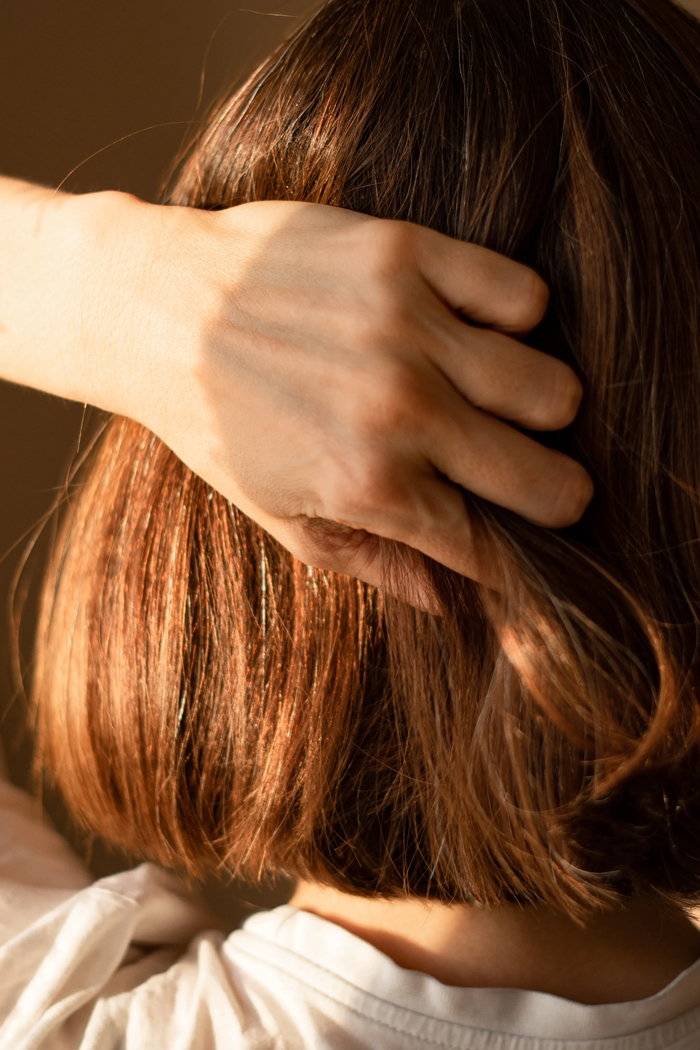If you suffer from an itchy scalp, you’re not alone. Itchy scalp is a very common issue that several different things can cause. Here are five possible causes of an itchy scalp:
1. Dandruff
While dandruff and seborrheic dermatitis often cause similar symptoms, they are two different conditions. Dandruff is characterized by flaky skin on the scalp that can cause itchiness and irritation. It’s a common condition that can usually be treated with over-the-counter dandruff shampoo. Seborrheic dermatitis, on the other hand, is a more severe condition that causes scaly patches, redness, and inflammation. It can occur on the scalp, face, chest, or elsewhere in the body where there are oil-producing glands. It is important to know the difference between seborrheic dermatitis and dandruff. If you think you might have seborrheic dermatitis, it’s important to see a doctor for treatment. Left untreated, seborrheic dermatitis can lead to hair loss and permanent damage to the skin.
2. Psoriasis
Psoriasis is a common skin condition that causes dry, itchy, and scaly skin. It can also cause thick, crusted patches of skin on the scalp. Psoriasis is a chronic condition, which means there is no cure. However, some treatments can help lessen the symptoms. Treatments for psoriasis can be divided into two categories: topical treatments and systemic treatments. Topical treatments are applied to the skin, including creams, gels, and ointments. Systemic treatments are taken orally or injected and include drugs that help to reduce inflammation. In some cases, a combination of topical and systemic treatments may be necessary to control the symptoms of psoriasis. If you have psoriasis, talk to your doctor about the best treatment option.
3. Eczema
Eczema is a chronic skin condition that causes the skin to become dry, red, and cracked. It can affect any body area but is most commonly found on the hands, feet, elbows, and knees. While the exact cause of eczema is unknown, it is thought to be related to a malfunction in the body’s immune system. People with eczema are more likely to have allergies and asthma. There is no cure for eczema, but there are treatments that can help to relieve the symptoms. If you think you might have eczema, see your doctor get a proper diagnosis and treatment plan.
4. Head Lice
Head lice are small, wingless insects that live on the scalp and feed on human blood. They are a very common problem, especially among children between the ages of 3 and 12. Head lice can cause intense itchiness as well as irritation and inflammation of the scalp. If you think you might have head lice, see your doctor to get a proper diagnosis and treatment plan. There are several over-the-counter head lice treatments available. Still, it is important to follow the directions carefully and to talk to your doctor if you have any questions or concerns. In most cases, head lice can be successfully treated with medication and good personal hygiene.
5. Allergies
Allergies are another possible cause of this uncomfortable symptom. Allergies can occur when your body reacts to a substance that is usually harmless. This can happen if you are exposed to an irritant in your environment, such as pollen or dust mites. You may also have an allergy to certain hair products, such as dyes or shampoos. If you think your itchy scalp is due to an allergy, see your doctor get a proper diagnosis and treatment plan. Allergies can be treated with medication, and avoiding triggers can help to prevent symptoms. With the right management, you can enjoy relief from an itchy scalp and live a normal, active life.
If you suffer from an itchy scalp, there are a number of things you can do to alleviate your symptoms. Be sure to see your doctor if the itchiness is severe or if over-the-counter treatments don’t seem to be helping. In some cases, prescription medication may be necessary to get your itchy scalp under control.



